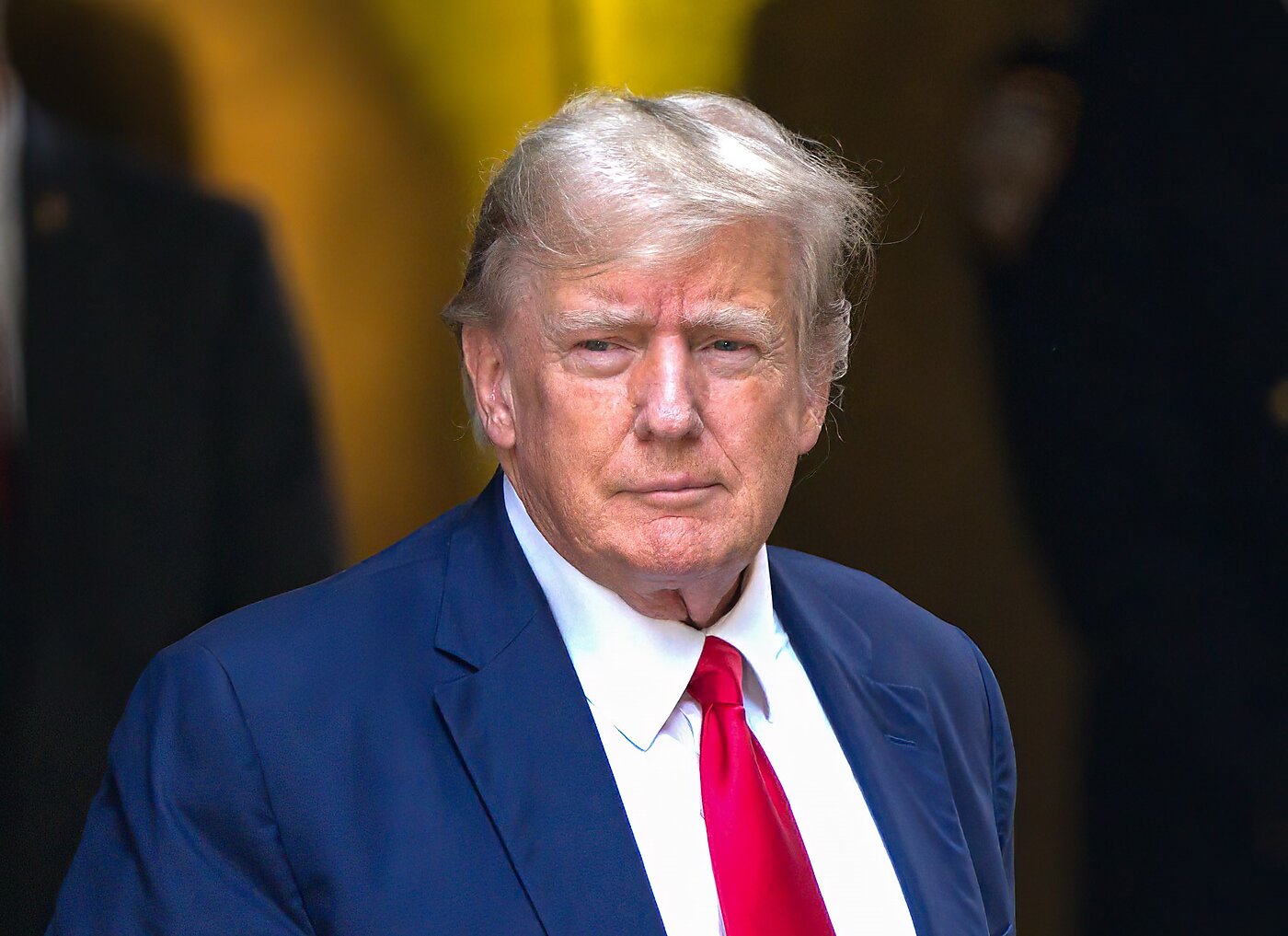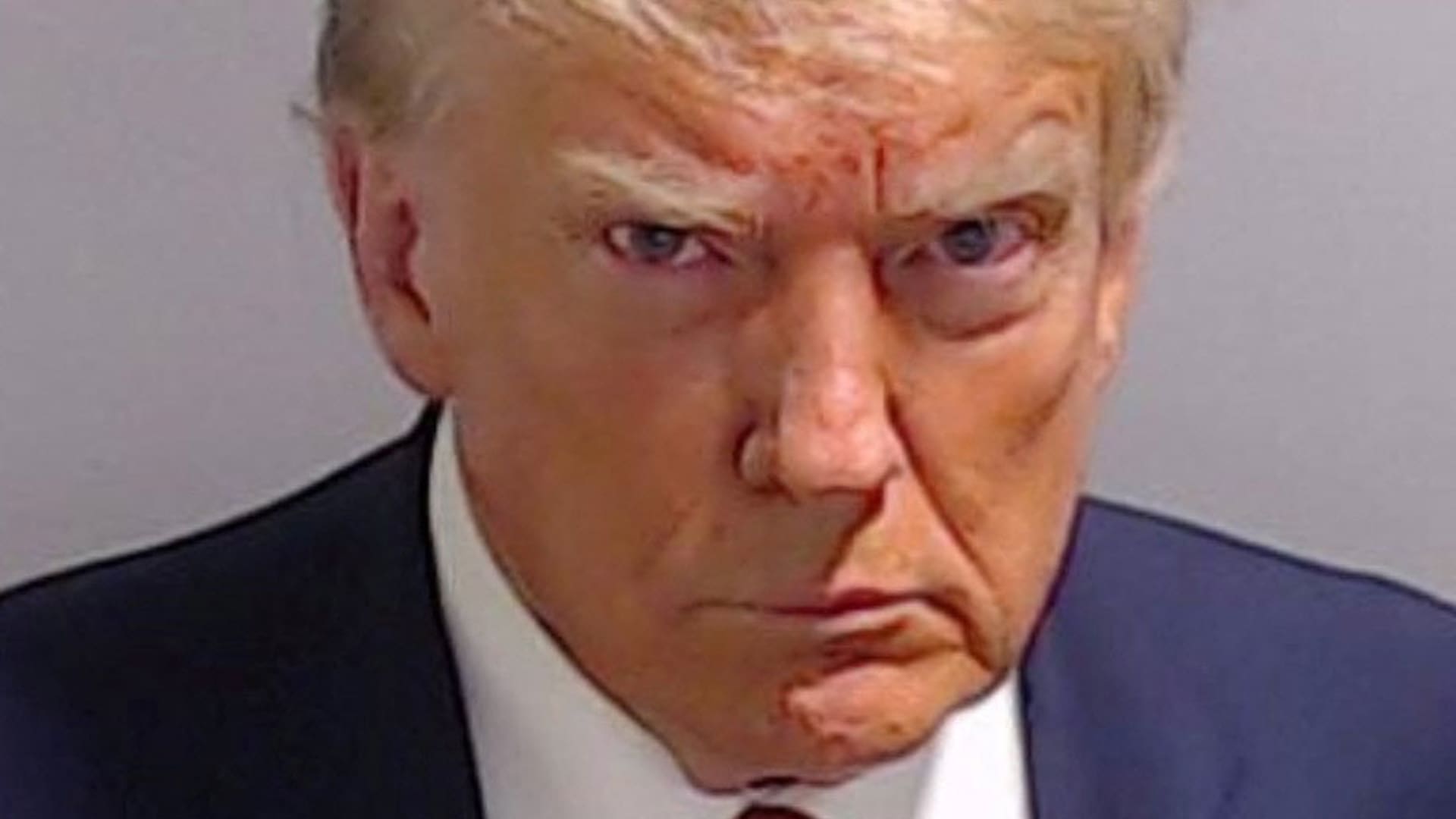2023 Trump IQCore Review: Results And Effectiveness
Trump IQCore: Unraveling the Enigma of Former U.S. President's Cognitive Abilities
Trump IQCore is an unofficial term used to encapsulate the wide-ranging and often contentious discussions surrounding the cognitive abilities of former U.S. President Donald Trump. It encompasses assessments of his intelligence, decision-making skills, and overall mental acuity, sparking debates among experts and the general public alike.
The significance of Trump IQCore lies in its potential implications for his presidency and the broader political landscape. Some observers argue that it sheds light on his capacity to lead effectively, while others contend that it is irrelevant to his performance as president. The topic has also sparked discussions about the role of psychological assessments in politics and the importance of transparency in public discourse.
Personal Details of Donald Trump
| Name | Donald John Trump |
|---|---|
| Date of Birth | June 14, 1946 |
| Place of Birth | Queens, New York City, U.S. |
| Political Party | Republican |
| Alma Mater | Wharton School of the University of Pennsylvania |
| Occupation | Businessman, Politician |
Transition to main article topics
trump iqcore
Intelligence Assessments
- Introduction: An overview of the various intelligence assessments conducted on Trump, including the widely discussed 2018 report by Dr. Harold Bornstein.
- Key Aspects: Examination of specific cognitive abilities assessed, such as reasoning, memory, and problem-solving.
- Discussion: Analysis of the results and their implications for understanding Trump's cognitive functioning.
Decision-Making Processes
- Introduction: Exploring Trump's approach to decision-making, considering factors such as impulsivity, risk-taking, and consultation with advisors.
- Key Aspects: Identification of patterns and characteristics in Trump's decision-making style.
- Discussion: Evaluation of the effectiveness and potential consequences of Trump's decision-making processes.
Overall Mental Acuity
- Introduction: Assessing Trump's general mental health and well-being, considering factors such as mood, sleep patterns, and stress management.
- Key Aspects: Examination of any observed changes or concerns regarding Trump's mental acuity.
- Discussion: Analysis of the potential impact of Trump's mental health on his ability to serve as president.
trump iqcore
Encompassing the multifaceted discussions surrounding former U.S. President Donald Trump's cognitive abilities, "trump iqcore" explores various dimensions, including:
- Danny Dorosh And Kavan Smith Look Alike
- Carrie Underwood
- Kelly Monaco
- Jesse Lee Soffer
- George And Amal Clooney Kids
- Intelligence Assessments: Evaluations of Trump's cognitive functioning, including reasoning, memory, and problem-solving abilities.
- Decision-Making Processes: Examination of Trump's approach to decision-making, considering factors such as impulsivity and consultation with advisors.
- Overall Mental Acuity: Assessment of Trump's general mental health and well-being, including mood, sleep patterns, and stress management.
- Public Perception: Analysis of public opinion and media portrayals of Trump's cognitive abilities, shaping perceptions of his fitness for office.
- Political Implications: Exploration of the potential impact of Trump's cognitive abilities on his presidency and the broader political landscape.
- Historical Context: Comparison of Trump's cognitive assessments to those of other U.S. presidents, providing historical perspective.
These aspects are interconnected, offering a comprehensive understanding of "trump iqcore." Intelligence assessments provide insights into Trump's cognitive strengths and weaknesses, while decision-making processes reveal how he utilizes his cognitive abilities in practical settings. Overall mental acuity encompasses his general mental health and well-being, which can influence his decision-making and public perception. Public perception shapes the narrative surrounding Trump's cognitive abilities, affecting his political standing. The political implications of "trump iqcore" highlight its significance in assessing his fitness for office, while the historical context provides a comparative framework for understanding Trump's cognitive abilities relative to other presidents.
Intelligence Assessments
Intelligence assessments play a crucial role in understanding the cognitive abilities of individuals, and Donald Trump has been the subject of numerous such assessments throughout his life. These assessments evaluate a range of cognitive functions, including reasoning, memory, and problem-solving abilities, providing insights into an individual's overall cognitive functioning.
- Cognitive Functioning: Cognitive assessments measure various aspects of cognitive functioning, including attention, memory, language, and executive functions such as planning and decision-making. These assessments can provide valuable insights into an individual's cognitive strengths and weaknesses.
- Standardized Tests: Standardized intelligence tests, such as the WAIS (Wechsler Adult Intelligence Scale), are commonly used to assess cognitive abilities. These tests provide a structured and reliable way to measure an individual's cognitive functioning and compare it to the performance of others in the same age group.
- Clinical Interviews: Clinical interviews conducted by psychologists or psychiatrists can provide qualitative assessments of an individual's cognitive functioning. These interviews involve detailed questioning and observation of the individual's behavior, allowing for a more comprehensive understanding of their cognitive strengths and weaknesses.
- Real-World Performance: Assessments of cognitive functioning can also consider an individual's real-world performance. This may involve evaluating their ability to perform everyday tasks, such as managing finances or making complex decisions, which can provide insights into their overall cognitive functioning in practical settings.
By evaluating these different aspects of cognitive functioning, intelligence assessments provide valuable insights into an individual's cognitive abilities. In the context of "trump iqcore," these assessments contribute to a comprehensive understanding of Donald Trump's cognitive functioning, including his strengths and weaknesses, which can inform discussions about his fitness for office and overall performance as president.
Decision-Making Processes
The examination of Donald Trump's decision-making processes forms a crucial component of "trump iqcore," providing insights into his cognitive functioning and its implications for his presidency. Trump's approach to decision-making has been characterized by both strengths and weaknesses, influencing the outcomes of his policies and actions.
One key aspect of Trump's decision-making is his tendency towards impulsivity. He has often been observed making decisions based on gut instinct or personal feelings, rather than relying on careful analysis or consultation with experts. While this approach can sometimes lead to quick and decisive actions, it can also result in rash decisions with unintended consequences.
Another factor influencing Trump's decision-making is his limited consultation with advisors. While he has surrounded himself with a team of advisors, he has often disregarded their advice or ignored their expertise. This lack of consultation can lead to decisions that are poorly informed or that fail to consider all relevant perspectives.
Understanding Trump's decision-making processes is essential for assessing his fitness for office. Impulsivity and limited consultation with advisors can pose significant risks in high-stakes situations, where careful deliberation and consideration of multiple viewpoints are crucial. By examining these decision-making processes, we gain a deeper understanding of Trump's cognitive functioning and its implications for his presidency.
Overall Mental Acuity
Overall mental acuity encompasses the assessment of an individual's general mental health and well-being, including their mood, sleep patterns, and stress management abilities. In the context of "trump iqcore," overall mental acuity plays a crucial role in understanding Donald Trump's cognitive functioning and its implications for his presidency.
Mood, sleep patterns, and stress management are key indicators of an individual's mental well-being. Stable mood, regular sleep patterns, and effective stress management strategies contribute to optimal cognitive functioning. Conversely, disturbances in these areas can negatively impact cognitive abilities, decision-making, and overall performance.
In the case of Donald Trump, his overall mental acuity has been a subject of discussion and debate. Some observers have raised concerns about his mood swings, impulsive behavior, and difficulty sleeping, suggesting that these may affect his cognitive functioning and decision-making abilities. Others have argued that Trump's unconventional approach and unconventional sleep patterns do not necessarily indicate cognitive impairment.
Understanding Trump's overall mental acuity is crucial for assessing his fitness for office. A president's mental health and well-being can significantly impact their ability to handle the demands of the job, make sound decisions, and lead the nation effectively. By examining Trump's overall mental acuity, we gain a deeper insight into his cognitive functioning and its implications for his presidency.
Public Perception
Public perception plays a significant role in shaping the narrative surrounding Donald Trump's cognitive abilities, contributing to the overall understanding of "trump iqcore." Public opinion and media portrayals can influence perceptions of Trump's fitness for office, creating a feedback loop that affects both his public image and his ability to lead effectively.
Media portrayals of Trump's cognitive abilities have been highly influential in shaping public perception. News coverage, social media commentary, and political satire have all contributed to the public's understanding of Trump's mental acuity. Positive portrayals can bolster public confidence in his leadership, while negative portrayals can raise concerns about his fitness for office.
Public opinion, in turn, influences the media's coverage of Trump's cognitive abilities. Media outlets are more likely to report on stories that align with public sentiment, reinforcing existing perceptions and further shaping public opinion. This feedback loop can create a self-perpetuating cycle, where public opinion and media portrayals reinforce each other, either positively or negatively.
Understanding the connection between public perception and "trump iqcore" is essential for assessing the impact of cognitive abilities on Trump's presidency. Public perception can influence the political climate, affect policy decisions, and ultimately shape the legacy of his administration. By examining this connection, we gain a deeper insight into the complex interplay between public opinion, media portrayals, and the overall understanding of Donald Trump's cognitive abilities.
Political Implications
The political implications of Donald Trump's cognitive abilities form a critical component of "trump iqcore," as they shed light on the potential impact of his cognitive functioning on his presidency and the broader political landscape. Understanding this connection is crucial for assessing Trump's fitness for office and the implications of his cognitive abilities for the nation.
One key aspect of the political implications lies in the potential impact of Trump's cognitive abilities on his decision-making processes. As discussed earlier, Trump's impulsive decision-making style and limited consultation with advisors raise concerns about the quality of his decisions, particularly in high-stakes situations. This has implications for both domestic and foreign policy, as rash decisions can have far-reaching consequences.
Another political implication relates to public perception and trust. If the public perceives Trump as cognitively impaired or unfit for office, it can undermine his authority and make it difficult for him to lead effectively. This can lead to political gridlock, as opponents may question the legitimacy of his decisions and policies. Furthermore, it can damage the reputation of the United States on the international stage.
Understanding the political implications of "trump iqcore" is essential for assessing the overall impact of Trump's presidency. By examining the connection between his cognitive abilities and their potential consequences for his decision-making and public perception, we gain a deeper insight into the challenges and opportunities facing the nation under his leadership.
Historical Context
Understanding the historical context of cognitive assessments of U.S. presidents is crucial for evaluating Donald Trump's "trump iqcore." Comparing Trump's assessments to those of his predecessors provides a valuable perspective on the norms and expectations for cognitive functioning among U.S. presidents.
Historically, cognitive assessments of presidents have been conducted informally, often relying on observations and anecdotal evidence. However, in recent decades, there has been a growing emphasis on more formal assessments, including standardized tests and clinical interviews. This shift reflects a recognition of the importance of cognitive functioning for effective presidential leadership.
Comparing Trump's cognitive assessments to those of other presidents highlights both similarities and differences. Some presidents, such as Ronald Reagan and George H.W. Bush, underwent formal cognitive assessments late in their presidencies, revealing generally positive results. Others, such as Woodrow Wilson and Franklin D. Roosevelt, faced rumors and speculation about their cognitive abilities, but no formal assessments were conducted.
The historical context of cognitive assessments provides a benchmark for evaluating Trump's "trump iqcore." By comparing his assessments to those of other presidents, we can better understand the expectations and norms for cognitive functioning among U.S. presidents and assess whether Trump's cognitive abilities meet these expectations.
FAQs on "trump iqcore"
This section addresses frequently asked questions (FAQs) on "trump iqcore," providing concise and informative answers to common concerns or misconceptions.
Question 1: What is the significance of "trump iqcore"?
Answer: "Trump iqcore" encompasses discussions surrounding former U.S. President Donald Trump's cognitive abilities, including his intelligence, decision-making processes, and overall mental acuity. It is significant as it seeks to understand how Trump's cognitive functioning may have influenced his presidency and the broader political landscape.
Question 2: How are cognitive assessments conducted on U.S. presidents?
Answer: Cognitive assessments of U.S. presidents have historically been conducted informally, relying on observations and anecdotal evidence. However, in recent decades, there has been a growing emphasis on more formal assessments, including standardized tests and clinical interviews. These assessments aim to evaluate various cognitive functions, such as reasoning, memory, and decision-making abilities.
Summary: Understanding "trump iqcore" involves examining the multifaceted aspects of Donald Trump's cognitive abilities, considering their potential implications for his presidency and the broader political context. Cognitive assessments play a crucial role in evaluating Trump's cognitive functioning, and comparing these assessments to those of other U.S. presidents provides a valuable historical perspective.
Conclusion
The exploration of "trump iqcore" has provided a multifaceted analysis of former U.S. President Donald Trump's cognitive abilities and their potential implications for his presidency. Cognitive assessments, public perception, and historical context all contribute to a comprehensive understanding of this topic.
While there is no consensus on the precise nature of Trump's cognitive functioning, the discussions surrounding "trump iqcore" underscore the importance of cognitive abilities for effective presidential leadership. The cognitive demands of the presidency require a high level of reasoning, decision-making, and overall mental acuity. Understanding the cognitive functioning of presidents is crucial for evaluating their fitness for office and ensuring the smooth operation of government.

Agree With It or Not, Colorado Supreme Court’s Opinion Disqualifying

Trump will surrender to face charges if indicted, defense lawyer says

Trump election court case Threats follow vow to come after foes